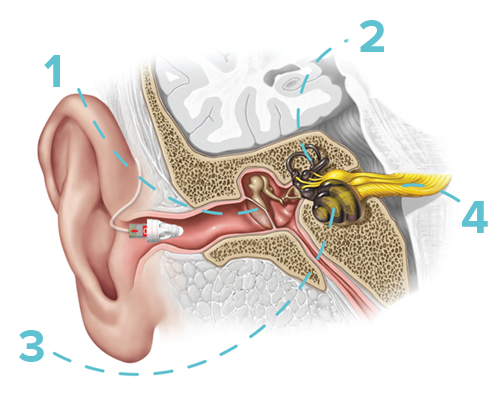Frequently Asked Questions
Sensorineural hearing loss occurs when there is damage to the inner ear or the nerve pathways that transmit sound signals from the inner ear to the brain. This type of hearing loss is often caused by aging, exposure to loud noises, head injuries, or certain medical conditions such as infections, autoimmune disorders, and genetic disorders.
The main characteristic of sensorineural hearing loss is a reduced ability to hear faint or soft sounds and difficulty understanding speech, particularly in noisy environments. In some cases, individuals with sensorineural hearing loss may also experience tinnitus, which is a ringing or buzzing sound in the ears.
Sensorineural hearing loss is typically permanent, although hearing aids, cochlear implants, and other assistive devices can help improve hearing ability in many cases. Early diagnosis and treatment are important to prevent further hearing loss and to improve overall communication and quality of life. Hearing tests performed by an audiologist can help determine the type and severity of hearing loss and identify appropriate treatment options.
Various factors, including aging, genetics, medical conditions, and exposure to loud noises can cause sensorineural hearing loss. While some of these factors may be beyond an individual’s control, some steps can be taken to help prevent sensorineural hearing loss or slow its progression.
One of the most important preventative measures is to protect your ears from loud noises. This can be done by wearing earplugs or earmuffs in noisy environments, such as concerts or construction sites, or by keeping the volume of personal audio devices at a safe level.


As hearing experts, we provide comprehensive testing and work with ENT specialists to ensure the care of your hearing health.
South Edmonton: 780-809-1349
St. Albert: 780-590-1349